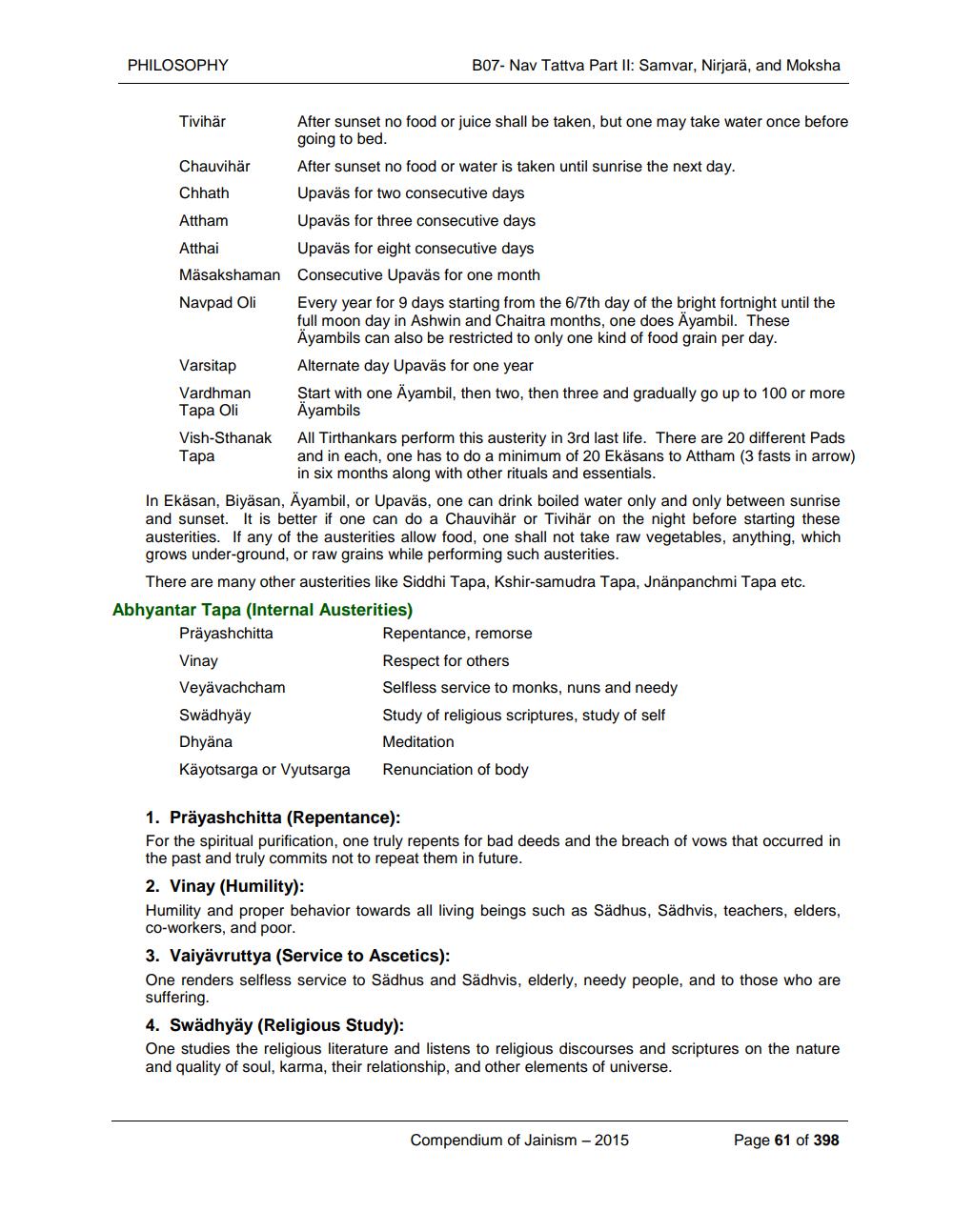________________
PHILOSOPHY
Tivihär
Chauvihär
Chhath
Attham
Atthai
Mäsakshaman Navpad Oli
Varsitap
Vardhman Tapa Oli
Vish-Sthanak Tapa
B07- Nav Tattva Part II: Samvar, Nirjarä, and Moksha
After sunset no food or juice shall be taken, but one may take water once before going to bed.
After sunset no food or water is taken until sunrise the next day.
Upaväs for two consecutive days
Upaväs for three consecutive days
Upaväs for eight consecutive days
Consecutive Upaväs for one month
Every year for 9 days starting from the 6/7th day of the bright fortnight until the full moon day in Ashwin and Chaitra months, one does Äyambil. These Äyambils can also be restricted to only one kind of food grain per day.
Alternate day Upaväs for one year
Start with one Äyambil, then two, then three and gradually go up to 100 or more Ayambils
All Tirthankars perform this austerity in 3rd last life. There are 20 different Pads and in each, one has to do a minimum of 20 Ekäsans to Attham (3 fasts in arrow) in six months along with other rituals and essentials.
In Ekäsan, Biyäsan, Äyambil, or Upaväs, one can drink boiled water only and only between sunrise and sunset. It is better if one can do a Chauvihär or Tivihär on the night before starting these austerities. If any of the austerities allow food, one shall not take raw vegetables, anything, which grows under-ground, or raw grains while performing such austerities.
There are many other austerities like Siddhi Tapa, Kshir-samudra Tapa, Jnänpanchmi Tapa etc. Abhyantar Tapa (Internal Austerities)
Präyashchitta
Vinay
Veyavachcham
Swädhyäy
Dhyana
Käyotsarga or Vyutsarga
Repentance, remorse
Respect for others
Selfless service to monks, nuns and needy Study of religious scriptures, study of self Meditation
Renunciation of body
1. Prayashchitta (Repentance):
For the spiritual purification, one truly repents for bad deeds and the breach of vows that occurred in the past and truly commits not to repeat them in future.
2. Vinay (Humility):
Humility and proper behavior towards all living beings such as Sädhus, Sädhvis, teachers, elders, co-workers, and poor.
3. Vaiyävruttya (Service to Ascetics):
One renders selfless service to Sädhus and Sädhvis, elderly, needy people, and to those who are suffering.
4. Swadhyay (Religious Study):
One studies the religious literature and listens to religious discourses and scriptures on the nature and quality of soul, karma, their relationship, and other elements of universe.
Compendium of Jainism - 2015
Page 61 of 398




